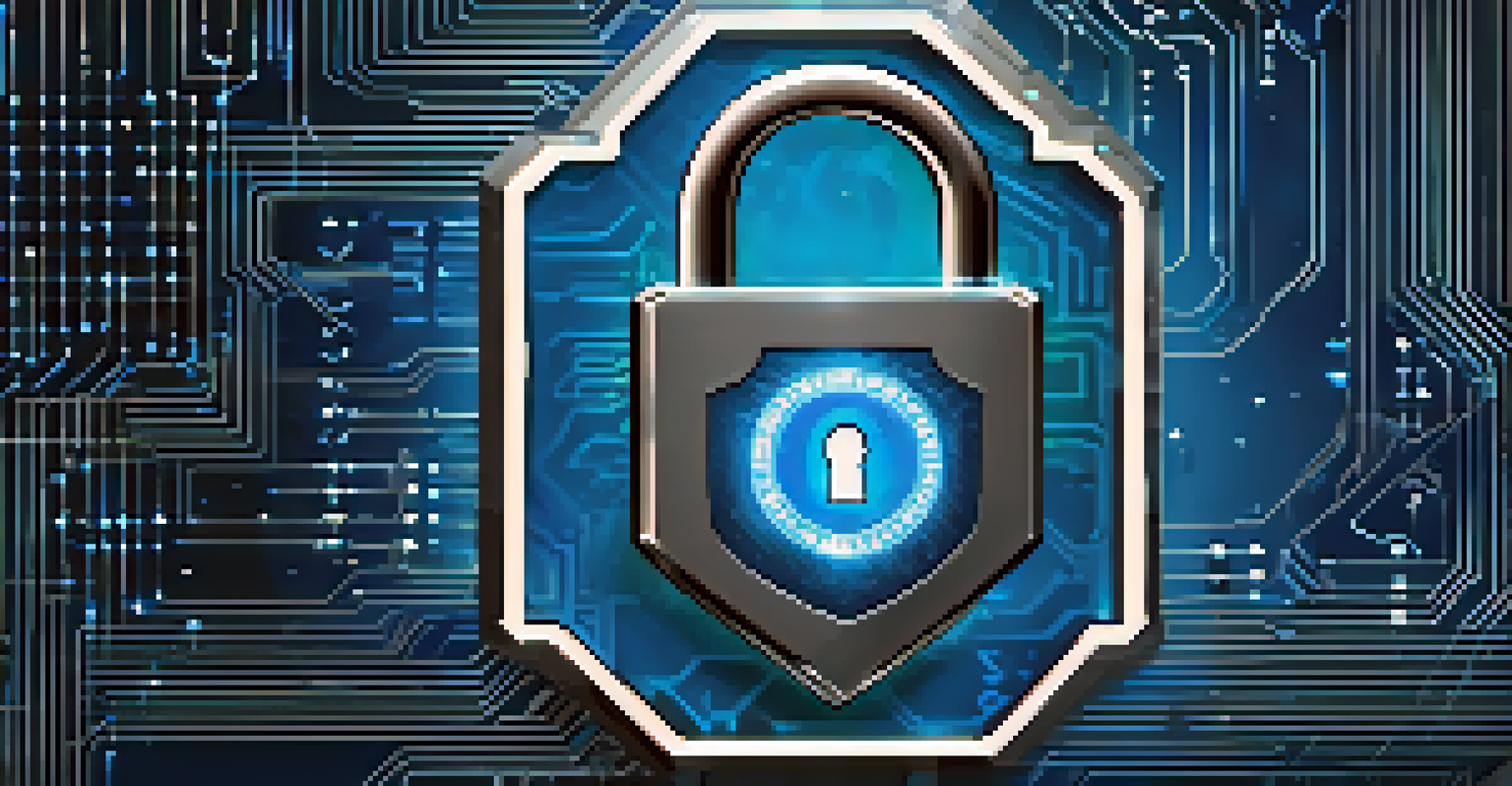Top 10 Digital Self Defense Strategies for Online Safety

Understand the Importance of Online Safety
In our digital age, online safety is more crucial than ever. With the rise of cyber threats, protecting your personal information has become a daily necessity. Just like you lock your doors at home, you need to secure your online presence.
The best way to predict the future is to create it.
Cybercriminals are constantly finding new ways to exploit vulnerabilities, which is why being informed is your first line of defense. By understanding the potential risks, you empower yourself to better navigate the online world. Remember, ignorance is not bliss when it comes to cybersecurity.
Moreover, fostering a culture of online safety can protect not only you but also your family and friends. Sharing knowledge about digital self-defense can create a ripple effect, enhancing the overall safety of your community.
Use Strong, Unique Passwords
One of the simplest yet most effective strategies is to use strong and unique passwords for each of your accounts. A strong password typically includes a mix of uppercase and lowercase letters, numbers, and special characters. Think of it as creating a secret code that only you can decipher.

Avoid using easily guessable information such as birthdays or common words. Instead, consider using a passphrase or a password manager to generate and store complex passwords securely. This way, you’ll never have to remember every password; you just need to remember one.
Prioritize Online Safety Awareness
Understanding the importance of online safety empowers you to better protect your personal information from cyber threats.
Regularly updating your passwords is also vital. It’s like changing the locks on your doors after a break-in; it keeps potential intruders at bay and gives you peace of mind.
Enable Two-Factor Authentication (2FA)
Two-factor authentication (2FA) adds an extra layer of security to your online accounts. By requiring a second form of verification, such as a text message or authentication app, you make it much harder for hackers to gain access. It's akin to having both a key and a security code to enter your home.
An ounce of prevention is worth a pound of cure.
Many platforms now offer 2FA as a standard feature, and enabling it is often just a click away. This small step can significantly reduce the risk of unauthorized access. If a hacker does manage to steal your password, they won’t be able to get into your account without that second factor.
Remember, while 2FA isn’t foolproof, it greatly enhances your account security. Think of it as an additional lock on your digital front door.
Be Cautious with Public Wi-Fi
While public Wi-Fi can be convenient, it can also be a hotspot for cybercriminals. When you log onto a public network, your data can easily be intercepted by others. This is like leaving your personal diary open for anyone to read.
Whenever possible, avoid accessing sensitive information, such as banking details, while connected to public Wi-Fi. If you must use it, consider using a virtual private network (VPN) to encrypt your data and keep your browsing activity private.
Use Strong, Unique Passwords
Creating strong and unique passwords for each account is essential for safeguarding your online presence.
Being aware of your environment also helps. If the network name looks suspicious or is unprotected, it’s best to steer clear and wait until you can connect to a secure, private network.
Monitor Your Online Presence Regularly
Keeping an eye on your online presence is essential for spotting potential threats. Regularly search for your name and see what information is publicly available. You might be surprised at what others can find with just a quick search.
Consider setting up Google Alerts for your name or any sensitive information. This way, you’ll receive notifications whenever your details appear online, allowing you to take action if necessary. It’s like having a personal security guard who alerts you to any suspicious activity.
Additionally, review your privacy settings on social media platforms. Ensuring that your information is only visible to trusted contacts can significantly reduce the chances of unwanted attention.
Be Wary of Phishing Scams
Phishing scams are designed to trick you into revealing sensitive information, usually through deceptive emails or messages. These scams can resemble legitimate communications, making it crucial to remain vigilant. Think of it as a wolf in sheep's clothing trying to gain your trust.
Always double-check the sender's email address and look for signs of a scam, such as poor grammar or urgent requests for information. If something feels off, it’s better to err on the side of caution and verify the source before clicking any links.
Stay Vigilant Against Phishing
Being cautious of phishing scams and verifying the source of communications can help prevent unauthorized access to your sensitive information.
Remember, legitimate organizations will never ask for sensitive information via email. If in doubt, reach out directly to the company through official channels to verify any requests.
Keep Software Updated
Keeping your software updated is one of the simplest yet most effective ways to enhance your online safety. Software updates often include security patches that protect against newly discovered vulnerabilities. It’s like getting a new coat of armor to fend off potential attacks.
Enable automatic updates whenever possible, so you don’t have to worry about missing critical patches. This ensures that your devices are always equipped with the latest defenses against cyber threats.

Additionally, don’t forget about your apps and browsers. Regularly updating these can significantly reduce your risk of being targeted by cybercriminals.
Educate Yourself and Others
Knowledge is power, especially in the realm of online safety. Take the time to educate yourself about the latest cybersecurity threats and best practices. This can be as simple as reading articles, attending webinars, or even participating in online courses.
Sharing this knowledge with family and friends can create a safer online environment for everyone. Consider hosting a casual get-together where you discuss digital self-defense strategies and share tips. It’s a great way to bond while also empowering those around you.
Remember, the more informed we are, the better equipped we become to handle potential threats. By staying educated, you can help create a culture of awareness and caution in your community.